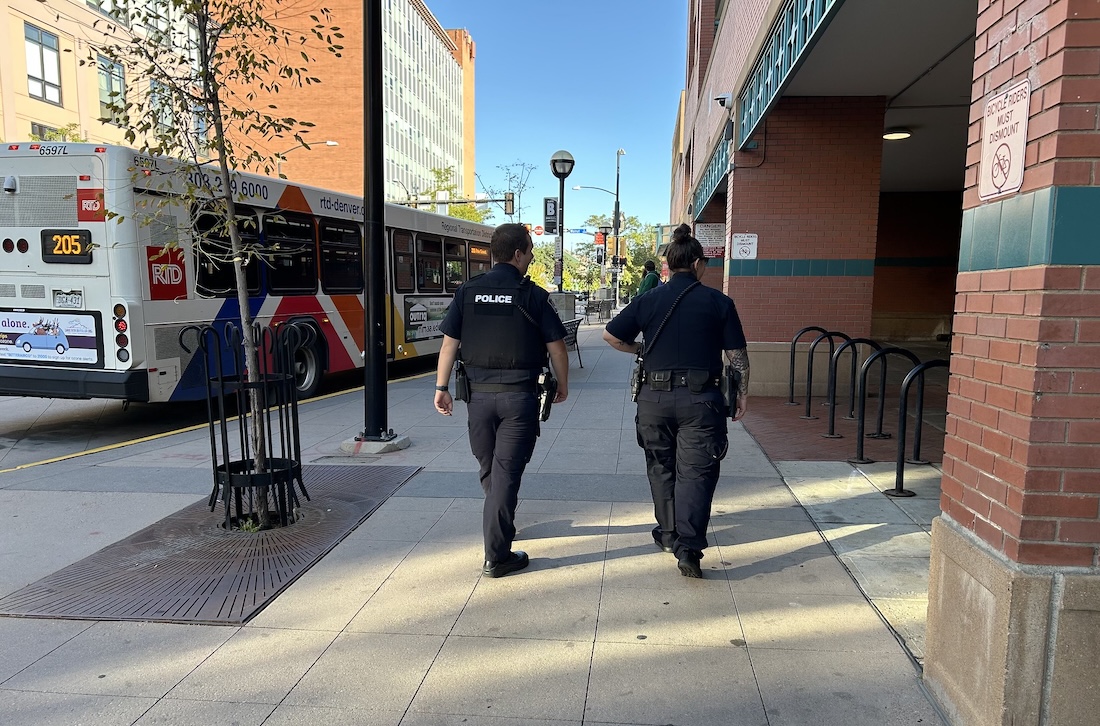
Regional Transportation District

Audio By Carbonatix
Metro Denver public transit has a new team of detectives, created to investigate and prosecute crimes that occur on RTD property across the area.
The RTD Police Department Detective Bureau formally launched earlier this month with five detectives, three of whom are new hires, as well as a new evidence and property storage room, according to RTD. After working for months to establish the new crime unit, the RTD PD can now further investigate and pursue suspects across eight counties and forty municipalities, which account for about 2,345 square miles.
Also new to the unit is a Victim’s Advocate Program specialist, Julie McKinster, who’s trained to inform victims of their rights and pathways through the criminal justice process; the victim’s advocate role is necessary to comply with the Colorado Victim’s Rights Act.
According to RTD, the added roles will help victims receive medical exams and, if needed, temporary shelter and relocation services. The detective unit will also better equip the RTD PD to investigate crimes such as theft, trespassing, drug use, assault, fraud and weapons offenses, as well as public peace and order violations, RTD officials say.
RTD Ridership Slips Amid Post-Pandemic Crime
RTD ridership numbers deteriorated during the pandemic, falling around 46 percent from 2019 to 2022, according to a Common Sense Institute report, with rider surveys and comments often citing increased crime and open drug use at RTD stops and aboard buses and light rail as reasons for avoiding public transit. Since 2022, the RTD PD has undergone aggressive expansion to combat crime, going from nineteen officers to over 100 in 2025, with K-9 units and 24-hour patrols also added.
According to RTD, the increased efforts and patrols have helped reduce reports of illicit drug use by 65 percent through this year. But, as outlined by the Common Sense Report, the growing police unit still faces obstacles in pursuing leads and suspects across so many jurisdictions — and not all of RTD’s data aligns with Colorado Bureau of Investigation statistics, which show that RTD police citations increased significantly from 2022 to 2023.
Now, with its own detective unit, the RTD PD can more easily prosecute offenses such as personal crimes, threats or use of force, and felony-level narcotics violations across a vast service area, the transit agency notes.
“The most important thing, as an example, if we’re going to prosecute a first-degree assault, we have to have the capability, resources and structure to give a victim the same quality of service as another police agency. I will never take something on that we’re not ready to do until we can perform the same quality of investigations as another police department,” RTD Lieutenant Fabian Rodriguez says in a statement. ““Even if we have a victim who wants to press charges, they don’t have a phone or a home, and it can be challenging to locate that individual for investigative follow-up such as to get them to sign a medical records release form or do a follow-up interview.”
Rodriguez says that his unit can now make better use of “small areas of property in other jurisdictions” owned by RTD, freeing up local police and sheriff’s departments. However, county jails must still be used for arrests and detainment, so RTD detectives have been trained to operate within each county’s jail and booking operations.
“There will be less calls for service on our system for outside agencies to address,” Rodriguez says, “because most criminal investigations we encounter are ones the bureau is equipped to handle.”